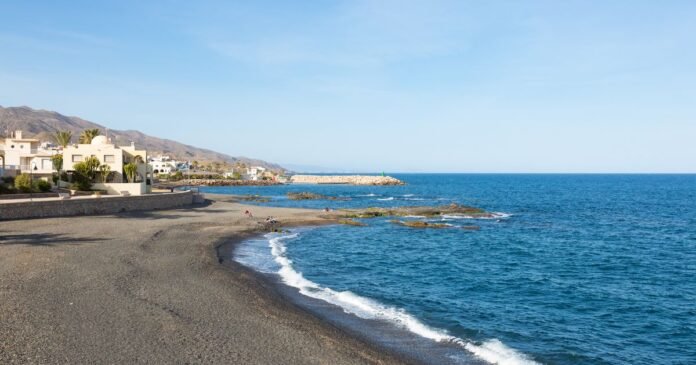Authorities have extended the beach ban to three additional beaches on Spain’s Costa Blanca coast due to the appearance of hazardous ‘blue dragons’ on the shore. A seven-mile stretch had already been closed following multiple sightings of the venomous sea slugs. These creatures, measuring an inch and a half, are easily identified by their vivid blue markings and spiky exterior, capable of causing severe pain if inadvertently encountered, likened to a potent jellyfish sting.
Red flags have been raised to warn beachgoers to steer clear of the Villaricos coastline between the cities of Cartagena and Almeria in south-east Spain. The ban was declared by town hall authorities and Civil Protection officers in Cuevas del Almanzora region as a precautionary measure.
A public alert stated, “In response to the blue dragon sighting in Cala Siret in Villaricos, the town hall has imposed a bathing prohibition along its entire coastline, affecting Cala Verde, el Playazo, and Cala Siret beaches. Red flags will be displayed starting Monday. These small mollusks are toxic, prompting the town council to activate safety protocols, including a swimming ban and surveillance to ensure no further sightings. Other beaches in Cuevas del Almanzora will hoist a yellow flag as a preventive measure against potential encounters.”
Visitors and residents are advised not to touch blue dragons under any circumstances, even with protective gear, and are urged to report sightings promptly. If stung, individuals are instructed to remain calm and avoid applying freshwater. Similar bans were previously enacted along the Costa Blanca coast due to blue dragon sightings, emphasizing the potential dangers posed by these sea slugs to vulnerable individuals.
The blue dragon, scientifically known as Glaucus atlanticus, preys on toxic marine creatures like the Portuguese man o’ war, absorbing and concentrating their venomous cells for a more potent sting. Symptoms of a blue dragon sting may include nausea, pain, vomiting, and allergic contact dermatitis. With warming oceans, these creatures are venturing northward in pursuit of their food sources, posing risks to beachgoers and marine life in the region.

